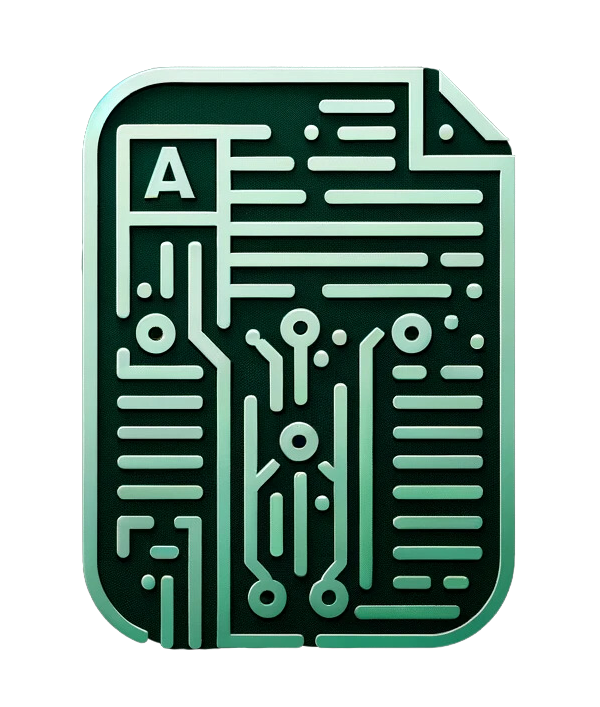Scraping PubMedCentral (PMC)#
PMC is a free full-text archive of biomedical and life sciences journal literature maintained by the National Center for Biotechnology Information (NCBI), which is part of the United States National Library of Medicine (NLM), a branch of the National Institutes of Health (NIH).
Note
It is not necessary to have an API key to access the PMC database. However, there is a limit
of 3 requests per second. Please note that if you exceed this limit, you may be temporarily
blocked from accessing the PMC database. sciencescraper.check_new_pmc_articles() makes
sure that the requests are made at a rate that does not exceed the limit.
Retrieving Article Information from PMC#
To retrieve an article from PMC, we needs its unique identifier, called the PMC ID (PMCID). The PMCID is a string of the form “PMC” followed by a number. This can be found in the article as well as in the URL of the article page on the PMC website.
import sciencescraper as ss
pmc_id = 'PMC9305720'
article_info = ss.get_pmc_article_info(pmc_id)
print(article_info)
{'title': 'De novo design of modular peptide-binding proteins by superhelical matching',
'authors': ['Kejia Wu',
'Hua Bai',
...
'David Baker'],
'journal': 'Nature',
'publisher': 'Nature Publishing Group UK',
'article_type': 'research-article',
'doi': '10.1038/s41586-023-05909-9',
'pmc_id': '10115654',
'date': '2023-4-5',
'url': 'https://www.ncbi.nlm.nih.gov/pmc/articles/10115654/',
'keywords': ['Proteins', 'Protein design'],
'abstract': 'General approaches for designing sequence-specific peptide-binding...',
'introduction': '...',
'methods': '...',
'results': '...',
'discussion': '...',
full_text: '...'}
The function sciencescraper.get_pmc_article_info() retrieves the article information from PMC and returns
a dictionary containing the article information and full text.
Retrieving Full Text Only#
If you are only interested in the full text of the article, you can use the function sciencescraper.get_pmc_full_text().
import sciencescraper as ss
pmc_id = 'PMC9305720'
full_text = ss.get_pmc_full_text(pmc_id, chunk_size=4200)
print(full_text)
['Title: De novo design of modular peptide-binding proteins by superhelical matching.
Article type: research-article. Publisher: Nature Publishing Group UK
Journal: Nature. Date: 2023-4-5. Keywords: Proteins, Protein design.
Abstract: General approaches for designing sequence-specific peptide-binding proteins
would have wide utility in proteomics and synthetic biology. However, designing
peptide-binding proteins is challenging, as most peptides do not have defined structures
in isolation, and hydrogen bonds must be made to the buried polar groups in the peptide
backbone. Here, inspired by natural and re-engineered protein–peptide systems,
we set out to design proteins made out of repeating units that bind peptides with repeating
sequences, with a one-to-one correspondence between the repeat units of the protein and those
of the peptide. We use geometric hashing to identify protein backbones and peptide-docking
arrangements that are compatible with bidentate hydrogen bonds between the side chains of
the protein and the peptide backbone12. The remainder of the protein sequence is then optimized
for folding and peptide binding...]
Searching for Articles#
You can search for articles on PMC using the function sciencescraper.search_pmc(). This function returns a list of PMCID’s
that match the search query. The function takes the following arguments:
query: The search query.sort: The sort order of the search results. The default is ‘relevance’. Other options are ‘pub_date’, ‘JournalName’, and ‘Author’.mindate: The minimum date for the search results. Format is ‘YYYY/MM/DD’.maxdate: The maximum date for the search results. Format is ‘YYYY/MM/DD’.reldate: The number of days before the current date to search for articles.retstart: The start index of the search results.retmax: The maximum number of search results to return.
Only the query argument is required. The other arguments are optional.
import sciencescraper as ss
query = 'protein design'
pmc_ids = ss.search_pmc(query, retmax=5)
print(pmc_ids)
['9523718', '9148388', '7032036', '7243446', '8920274']
Checking for the Newest Articles#
You can check for the newest articles on PMC using the function sciencescraper.check_new_pmc_articles(). This function returns a list of PMCID’s
for the newest articles on PMC. The function takes the following arguments:
query: The search query.days: The number of days before the current date to search for articles.chunk_size: The number of words to split the full text into. Optional.
import sciencescraper as ss
pmc_ids = ss.check_new_pmc_articles('protein design', days=1)
print(pmc_ids)
PubMed Central has 20 new articles!
[{'title': 'Cross-link assisted spatial proteomics to map sub-organelle proteomes and membrane
protein topologies', 'authors': ['Ying Zhu', 'Kerem Can Akkaya', 'Julia Ruta', 'Nanako Yokoyama',
'Cong Wang', 'Max Ruwolt', 'Diogo Borges Lima', 'Martin Lehmann', 'Fan Liu'], 'journal': 'Nature Communications',
'publisher': 'Nature Publishing Group UK', article_type': 'research-article', 'doi': '10.1038/s41467-024-47569-x',
'pmc_id': '11024108', 'date': '2024-4-17', 'url': 'https://www.ncbi.nlm.nih.gov/pmc/articles/11024108/',
'keywords': ['Protein-protein interaction networks', 'Mitochondria', 'Membrane proteins', 'Mass spectrometry'],
'abstract': 'The functions of cellular organelles and sub-compartments depend on their protein content, which can be
characterized by spatial proteomics approaches. However, many spatial proteomics methods are limited in their ability
to resolve organellar sub-compartments, profile multiple sub-compartments in parallel...'}...]
